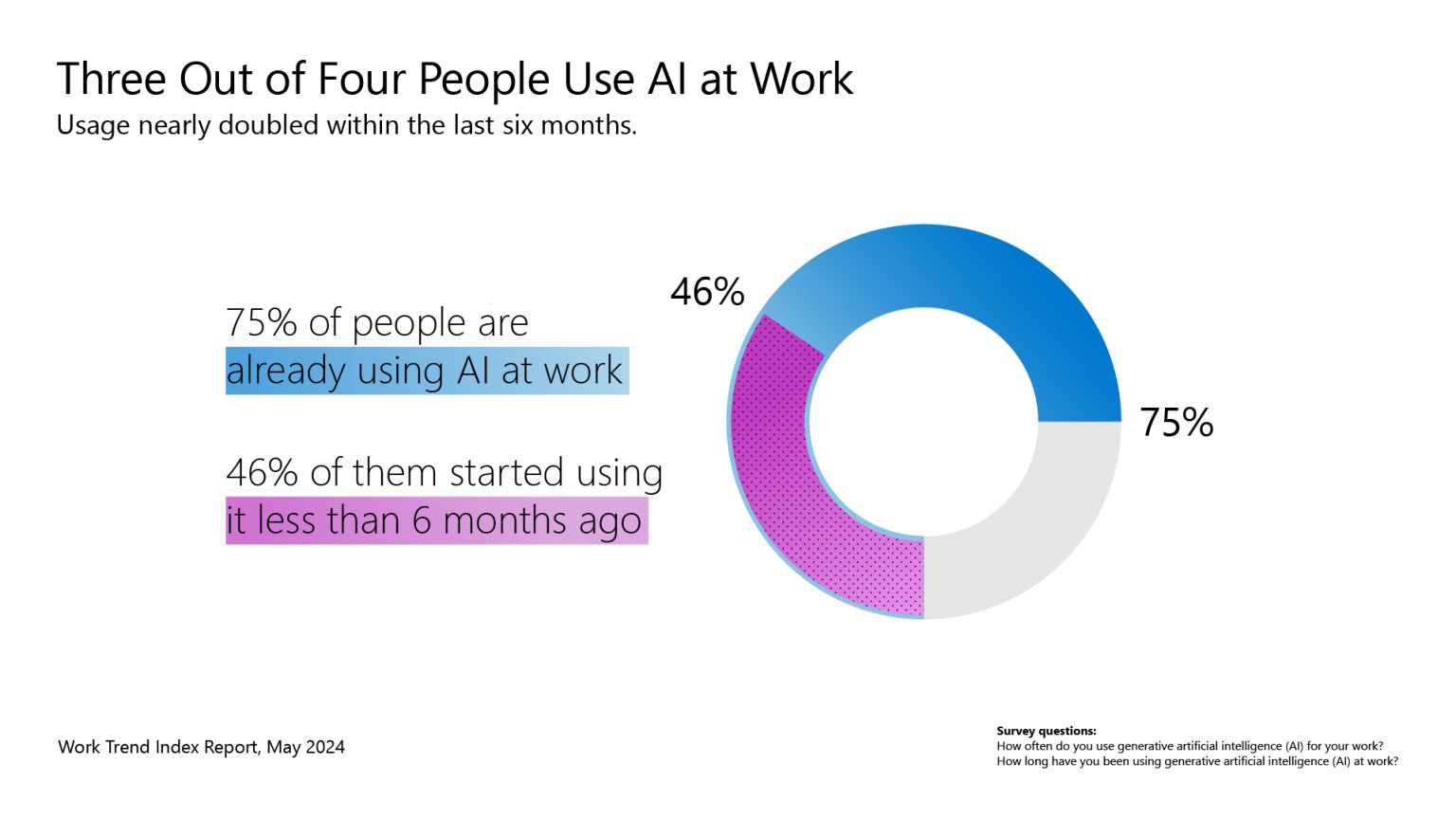Microsoft recently released a new version of their annual Work Trend Index study, which focuses on the transformation of work in recent years, including the impact of remote and hybrid work arrangements, as well as the increasing use of artificial intelligence in the workplace. The study, based on a survey of 31,000 people in 31 countries and data from Microsoft 365 usage and LinkedIn, revealed that AI usage has nearly doubled in the past six months, with 75% of knowledge workers now utilizing AI tools. The report presents an optimistic view of AI’s impact on productivity and efficiency, aligning with Microsoft’s focus on AI adoption by knowledge workers.
According to the study, AI “power users” are saving over 30 minutes a day with the help of AI tools, supporting Microsoft’s past promises that AI would streamline everyday work tasks. The report also highlights the trend of “Bring Your Own AI” (BYOAI), with about 78% of AI users adopting AI tools on their own. While this trend benefits individual users seeking greater efficiency, Microsoft warns that companies allowing BYOAI may miss out on the potential benefits of strategic AI at scale and could put their data at risk.
In an effort to capitalize on the increasing adoption of AI in the workplace, Microsoft announced new features for Copilot for Microsoft 365, their flagship AI tool for work. The company is selling these new features as an add-on to enterprise licensing packages, with features including autocomplete AI prompts, prompts rewrite capabilities, and a chat interface called “Catch Up” offering insights and information on upcoming meetings. Additionally, a future feature will allow teams to create, publish, and manage AI prompts within their organization.
AI is also influencing the job market, as indicated by data from LinkedIn, which is owned by Microsoft. The number of people adding AI skills to their profiles has seen a significant increase, and job posts mentioning AI are receiving 17% more applications. LinkedIn data also revealed that over 45% of respondents globally are considering leaving their current jobs in the upcoming year, marking the highest percentage since the “Great Reshuffle” of 2021. This data underscores the impact of AI on job-seeking behaviors and the shifting dynamics of the workforce.
Overall, the study highlights the growing integration of AI in the workplace and its potential to enhance productivity and efficiency for knowledge workers. Microsoft’s focus on AI adoption by knowledge workers aligns with their strategic goals, as seen in the new features introduced for Copilot for Microsoft 365. However, the trend of BYOAI also poses risks for companies in terms of missing out on the benefits of strategic AI use at scale and potential data security concerns. The data also sheds light on the changing job market landscape, with the increasing demand for AI skills and a significant percentage of workers considering job changes in the coming year.


